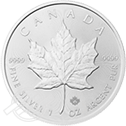Is Inflation on the Way?
Falling bond prices and rising yields have been the talk of the town in recent months. We felt it might be helpful, therefore, to discuss the notion of higher rates and what they may mean for you and your portfolio.
If you have resided on planet earth over the last several years, you are likely aware that interest rates, especially in the U.S., have been held at exceptionally low levels. Levels like zero, for over a decade.
This period of low-interest rates was the result of a combination of factors going back to 2008 including the mortgage crises, real estate market crash, stock market crash, and economic slowdown.
Low rates are the Fed’s way of fighting back. The idea behind low rates is that it can grease the economic wheels. When rates are low, banks may be more willing to lend, while borrowers may be more willing to borrow.
Businesses may try to expand with cheap money, and inflation may accelerate after the money supply has been expanded.
After many years of low yields, the tide has turned. While the economy remains sluggish, to say the least, it has risen off of levels seen in recent years. If you have watched or listened to the news at all, you are likely also aware that the Fed is going to continue to hike interest rates in the U.S.
Given the recent ascent of bond yields, what is the bond market telling us?
While inflation remains stubbornly high, the bond market may be pointing to even more price pressures ahead, or at least an ongoing nature of current price pressure.
What might this mean for you and your investments?
You must consider how high inflation may erode the value of your savings.
Put simply, inflationary pressures may erode the value of holdings, including both equity and fixed-income holdings.
If you hold fixed-income investments, for example, the value of those investments may decline as rates rise and thus prices drop. On the other hand, equity positions may also decline in value as higher rates begin to compete with long equity positions.
Consider this for a moment:
Looking at the rally in equities over the last several years, why do you think the market has gone up the way it has? I’ll give you a hint. It’s not due to the economic outlook, to corporate earnings or to stronger “fundamentals.”
The reality is that in the ongoing low-interest rate environment, investors have had nowhere else to go.
As inflation rises, real returns may be less and less as prices rise and everything becomes relatively more expensive.
The question you should be asking yourself, therefore, is what can I possibly due to stay ahead of inflation?
Think about this for a moment: How would you feel seeing the value of your fixed-income holdings eroded? How would you feel watching much of your recent gains in equities evaporate before your very eyes?
Don’t wait until inflation gets even worse. The time to act is now…
We suggest taking a look at hard assets. Hard assets like gold, silver, platinum, or palladium. Assets that cannot go bankrupt or default, assets that may hold their value or even rise during inflationary periods.
Precious metals have long been considered a reliable store of value during both inflationary and non-inflationary periods. They have been bought and held by central banks, governments, and investors alike for their stability and inherent value.
The global financial marketplace is gearing up for some big changes. Changes in monetary policy, in fiscal policies, interest rates, and inflation expectations.
If you are not able to change with it, you and your portfolio may be left in the dust…
Don’t wait until your purchasing power has already declined and your portfolio has lost ground.
It’s time to consider adding anti-inflation assets such as physical gold or silver…
One of the easiest ways to accomplish this is to consider an allocation in gold or silver within your retirement portfolio. It has never been easier than it is today to roll over retirement funds into a precious metals IRA.
To learn more about gold, silver, and other precious metals, and how they may potentially fit into your investment strategy, request a copy of our gold IRA guide today.
Talk to an IRA advisor about how to roll over your 401(k) into a Gold IRA by opening a self-directed IRA account, contact us or call us at 800-341-8584 today.



